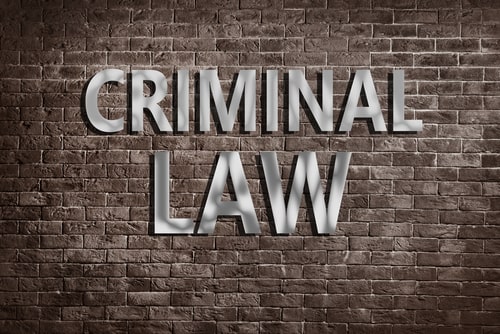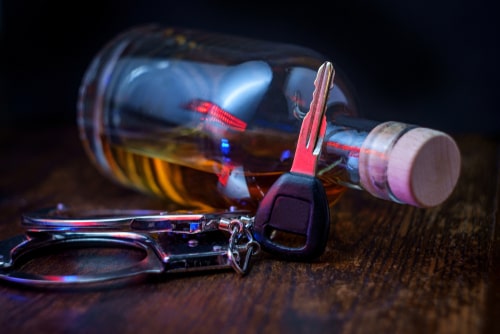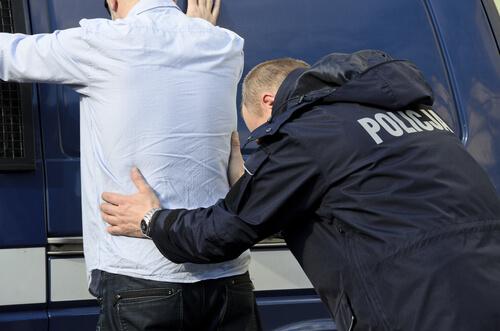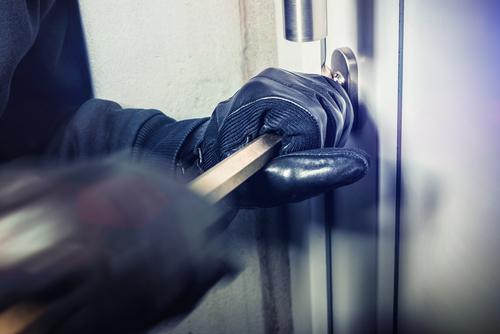Recent Blog Posts
Understanding Illinois Murder Charges
 Murder charges of all types carry serious penalties that can upend the life of anyone convicted. Killing another human being is wrong, and Illinois courts will look to penalize anyone who engages in such a heinous act. However, the circumstances surrounding murder charges are not always so cut and dry, and understanding the different murder charges a defendant can face may be the difference between a few years to life in prison. The different types of murder in Illinois include:
Murder charges of all types carry serious penalties that can upend the life of anyone convicted. Killing another human being is wrong, and Illinois courts will look to penalize anyone who engages in such a heinous act. However, the circumstances surrounding murder charges are not always so cut and dry, and understanding the different murder charges a defendant can face may be the difference between a few years to life in prison. The different types of murder in Illinois include:
- First-Degree Murder
- Second-Degree Murder
- Involuntary Manslaughter
- Vehicular Homicide
Anyone facing charges of this kind will require an experienced attorney to help navigate the complexity of the charges and develop a sound defense for your trial.
First-Degree Murder
Illinois does not have a capital murder charge. So, anyone facing a charge of first-degree murder in Illinois does not have to worry about receiving the death penalty since it has already been abolished in the state. That makes first-degree murder the most serious murder charge one can face in the state of Illinois.
Does Illinois Have Red Flag Laws?
 Yes, Illinois does have red flag laws in place to confiscate arms if necessary. However, Illinois rarely uses the red flag law. In fact, it ranks very low on the list of states in the use of red flag gun laws. So, the chances are rather slim for the state to confiscate your lawfully acquired weapons unless you are facing gun charges in the use of those weapons. As such, it is a smart move to have an experienced gun charges defense attorney on standby to help fight them.
Yes, Illinois does have red flag laws in place to confiscate arms if necessary. However, Illinois rarely uses the red flag law. In fact, it ranks very low on the list of states in the use of red flag gun laws. So, the chances are rather slim for the state to confiscate your lawfully acquired weapons unless you are facing gun charges in the use of those weapons. As such, it is a smart move to have an experienced gun charges defense attorney on standby to help fight them.
What Are “Red Flag” Gun Laws?
Illinois passed its own red flag law in 2019, allowing family members to petition for the removal of firearms from those who pose a threat to others or themselves. Red flag laws are also known as firearm restraining orders in the state of Illinois and are a tool to be used by the public and prosecutors to help ensure neighborhood safety.
Facing DUI Charges That Ended in Tragedy
 Driving under the influence (DUI) is a bad enough legal issue without having to add something as complicated as death. Sadly, tragedies can strike even when accidental or unprovoked. Facing DUI charges that involve the death or deaths of individuals carries serious penalties. A skilled criminal defense attorney experienced in aggravated DUI cases can provide much-needed guidance and defense to your situation.
Driving under the influence (DUI) is a bad enough legal issue without having to add something as complicated as death. Sadly, tragedies can strike even when accidental or unprovoked. Facing DUI charges that involve the death or deaths of individuals carries serious penalties. A skilled criminal defense attorney experienced in aggravated DUI cases can provide much-needed guidance and defense to your situation.
On The Shoulders of the Prosecution
Illinois statute outlines aggravated DUI as a person is guilty while driving intoxicated and involves great bodily harm or death to another person or people. Great bodily harm and death are two separate cases that require the prosecutor to prove the driver was directly the cause of the harm or death inflicted on the other person or persons. A conviction by the prosecution will carry steep penalties for the defendant who will see mandatory prison time on top of penalties reserved for DUI.
Can I Be Charged with Homicide if I Was Using Self-Defense?
 Homicide is the killing of one human being by another. It is a serious crime in Chicago, and anyone who is accused of it can face life in prison. However, it is important to remember that the victim of an attempted homicide can also be charged with a crime. This is because the initial criminal charges do not always distinguish between who is the aggressor and who was simply using violence to protect themselves in a situation involving violent crime.
Homicide is the killing of one human being by another. It is a serious crime in Chicago, and anyone who is accused of it can face life in prison. However, it is important to remember that the victim of an attempted homicide can also be charged with a crime. This is because the initial criminal charges do not always distinguish between who is the aggressor and who was simply using violence to protect themselves in a situation involving violent crime.
Speaking with a criminal defense attorney can help when facing homicide charges. You do not have to face them alone. An attorney can help you understand the charges, and your rights, and develop a defense strategy to fight them.
Getting Better Acquainted with Traffic Violation Laws in Chicago
 As drivers, we navigate the bustling streets of Chicago daily, commuting to work, running errands, and exploring the vibrant city. However, with the privilege of driving comes the responsibility to follow traffic laws and regulations. Traffic violations can happen to anyone, and understanding the rules of the road is essential for every motorist in the Windy City.
As drivers, we navigate the bustling streets of Chicago daily, commuting to work, running errands, and exploring the vibrant city. However, with the privilege of driving comes the responsibility to follow traffic laws and regulations. Traffic violations can happen to anyone, and understanding the rules of the road is essential for every motorist in the Windy City.
Obey the Limits, Avoid the Risks
The speed limits in Chicago are carefully determined based on road conditions, traffic flow, and safety considerations. Exceeding the speed limit not only increases the risk of an accident but also carries the possibility of heavy fines and a license suspension. To guarantee the safety of all road users, it is critical to drive at a safe and acceptable speed while adhering to posted speed restrictions.
A defense attorney can assist in challenging speeding violations by examining the evidence for accuracy and legality. They can identify potential errors in speed measurement devices or improper traffic signage. Attorneys negotiate with prosecutors for reduced charges or penalties, and if necessary, present a strong case in court to contest the speeding violation.
Understanding the Difference between Burglary and Robbery Charges in Chicago, Illinois
 When it comes to criminal charges, being aware of the distinctions between different offenses is crucial for building a strong defense. In the city of Chicago, Illinois, two commonly misunderstood charges are burglary and robbery. Whether you find yourself facing burglary or robbery charges, understanding the nuances of these offenses is essential to protecting your rights and navigating the legal system effectively.
When it comes to criminal charges, being aware of the distinctions between different offenses is crucial for building a strong defense. In the city of Chicago, Illinois, two commonly misunderstood charges are burglary and robbery. Whether you find yourself facing burglary or robbery charges, understanding the nuances of these offenses is essential to protecting your rights and navigating the legal system effectively.
Understanding Burglary Charges in Chicago
Burglary is a serious offense in which an individual unlawfully enters a building or structure with the intent to commit a felony or theft inside. It is important to note that the mere act of entering a property without permission does not automatically make it a burglary. The intent to commit a crime upon entry is a crucial element that must be proven by the prosecution. In Chicago, burglary charges can be classified into different degrees based on various factors such as the presence of weapons, damage caused, or whether the structure was occupied at the time of the offense. Penalties for burglary convictions can range from probation to significant prison time, depending on the circumstances and the defendant's prior criminal record.
Know Your Rights: Home Invasion Laws in Illinois and Chicago Explained
 The security of our homes and personal spaces is very important and yet, sometimes it can be taken for granted. Unfortunately, instances of home invasion can shatter that sense of safety and leave lasting emotional and physical scars. In Illinois, the law takes home invasion seriously and provides stringent measures to protect individuals and their properties.
The security of our homes and personal spaces is very important and yet, sometimes it can be taken for granted. Unfortunately, instances of home invasion can shatter that sense of safety and leave lasting emotional and physical scars. In Illinois, the law takes home invasion seriously and provides stringent measures to protect individuals and their properties.
What is a Home Invasion?
Home invasion refers to the unlawful entry into a dwelling with the intent to commit a felony or inflict harm on the occupants. It is important to note that mere unauthorized entry without criminal intent does not constitute home invasion. Illinois law recognizes the severity of this crime and has established specific statutes to address it comprehensively.
What are the Elements of a Home Invasion?
To secure a conviction for home invasion, the prosecution must prove several essential elements beyond a reasonable doubt. These elements typically include:
Driving on a Suspended or Revoked License in Illinois
 If you have been charged with driving on a suspended or revoked license in Chicago, Illinois, you may be wondering what your options are and what consequences you could face. At the Luisi Legal Group, we understand how stressful and overwhelming this situation can be, and we are here to help you navigate your legal options.
If you have been charged with driving on a suspended or revoked license in Chicago, Illinois, you may be wondering what your options are and what consequences you could face. At the Luisi Legal Group, we understand how stressful and overwhelming this situation can be, and we are here to help you navigate your legal options.
What Circumstances Can Result in a Suspended or Revoked License?
There are several reasons why your driver's license may be suspended or revoked in Illinois. Some of the most common reasons include:
- Driving under the influence of drugs or alcohol
- Accumulating too many points on your driving record
- Failing to pay fines or appear in court
- Being convicted of certain crimes, such as reckless driving or leaving the scene of an accident
What to Know When You Have Been Accused of Retail Theft in Cook County, Illinois
 Most people are aware that if you are charged with retail theft or shoplifting in Illinois, you may face harsh criminal consequences that could seriously affect your future. These effects frequently include being able to find work, qualify for housing, and receive loan approval, among other things. With all mentioned above, it is important to speak with an experienced criminal defense lawyer.
Most people are aware that if you are charged with retail theft or shoplifting in Illinois, you may face harsh criminal consequences that could seriously affect your future. These effects frequently include being able to find work, qualify for housing, and receive loan approval, among other things. With all mentioned above, it is important to speak with an experienced criminal defense lawyer.
What Are the Penalties for Retail Theft?
The severity of the punishment for retail theft typically depends on the value of the goods that were either stolen or attempted to be stolen. You will likely be charged with a Class A Misdemeanor, which has a maximum punishment of one year in jail and a fine up to $2,500, if the value of the item was $300 or less. If the value of the item exceeded $300, you may be charged with a Class 4 felony, which carries a potential jail term of one to three years.
What to Do If You Are Arrested for a Drug Paraphernalia Charge in Illinois: A Guide for Protecting Your Rights
 If you or someone you know has been arrested for a drug paraphernalia charge in Illinois, it can be a scary and overwhelming experience. However, it is important to stay calm and take the necessary steps to protect your rights.
If you or someone you know has been arrested for a drug paraphernalia charge in Illinois, it can be a scary and overwhelming experience. However, it is important to stay calm and take the necessary steps to protect your rights.
Contact a Criminal Defense Lawyer Immediately
The first and most important step is to contact a criminal defense lawyer immediately. A skilled lawyer can guide you through the legal process, explain your rights, and defend your case in court. It's important to find a lawyer who is familiar with Illinois drug laws and has experience handling drug paraphernalia cases. A lawyer can provide you with the legal representation and advice you need to navigate the legal system.
Be Aware of Penalties for Drug Paraphernalia Charges in Illinois
The penalties for drug paraphernalia charges in Illinois can be severe, including fines, community service, probation, or even jail time if there are additional charges. If you are convicted of a drug paraphernalia charge, it could also affect your employment opportunities, housing options, and future criminal record. Therefore, it is important to take your case seriously and work closely with your lawyer. Your lawyer may be able to negotiate a plea bargain, reduce your charges, or even have your case dismissed. However, it is important to remember that every case is different, and there is no guarantee of a specific outcome.





 773-276-5541
773-276-5541










